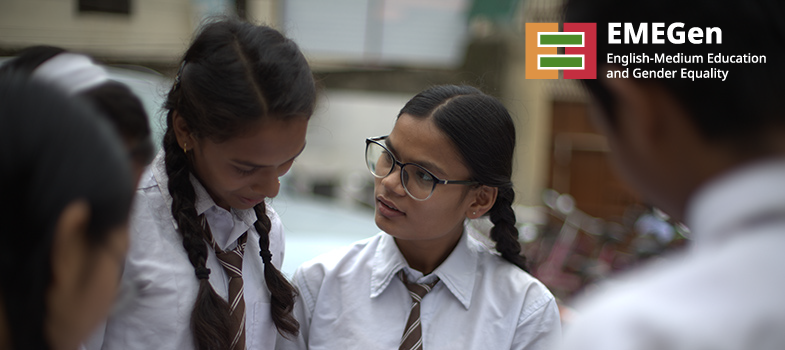
Abstract
Despite progress towards the Sustainable Development Goals to get girls into education in low- and middle-income countries, gender gaps persist. Many low- and middle-income countries increasingly use English as a language of learning and teaching instead of, or in addition to, one of the local languages. This raises questions about English and the impact language of learning and teaching may have on educational participation, attainment and inclusion, particularly for girls who may be already marginalised and vulnerable to exclusion.
This research, carried out by the Open University, combines cross-case studies with in-depth research in secondary schools in two linguistically, culturally and ethnically diverse contexts, Nepal and Nigeria, to explore the opportunities and challenges afforded to girls and boys by English. Data was collected from Nepali-medium, Hausa-medium and English-medium secondary schools, aiming to shed light on secondary level where gender disparities tend to be more varied and complex as well as less well understood. Adopting a feminist intersectional lens, the project compared how female students of different backgrounds fared compared with their male counterparts. You can learn more about the project from the project website.
The research produced a report, a policy brief and a set of evidence-based Open Educational Resources. The Open Educational Resources provide suggestions for practical ways to encourage and integrate gender-sensitive and responsive teaching and learning in your contexts. They are designed for use by classroom teachers of any subject, school leaders and informal learning facilitators.
Download the report, the policy brief and Open Educational Resources in PDF format below. Access and adapt the Open Educational Resources on an interactive online platform.
Citation:
Hultgren, A. K., Wingrove, P., Wolfenden, F., Greenfield, M., O’Hagan, L., Upadhaya, A., Lombardozzi, L., Sah, P. K., Adamu, A., Tsiga, I. A., Umar, A., & Veitch, A. (2024). English-medium education in low- and middle-income contexts: Enabler or barrier to gender equality? London: British Council.